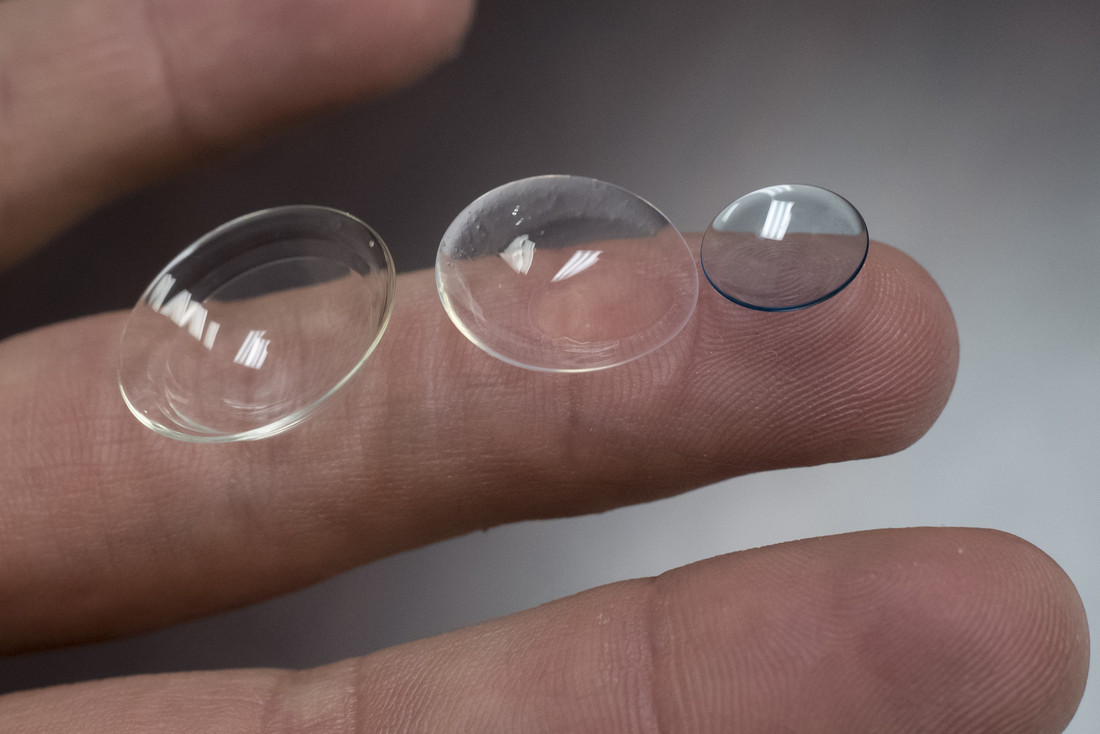By Tyra Rocker
At one time, extreme dry eye disease and blurred vision affected Laura Well’s quality of life. Now the UAB Eye Care patient has gotten relief with the help of scleral lenses.
“I am truly grateful for scleral lenses, for they have greatly enhanced my quality of life,” Wells said.
Scleral lenses are a special type of contact lens designed for people who have complications with corneal problems. The lenses are made to fit over the cornea, resting on the eye to correct the vision while forming a fluid reserve to help relieve dry eye.
Wells suffered from a case of dry eye disease, ocular rosacea and extreme sensitivity that caused her vision to blur and fluctuate often. She tried wearing regular contacts, but had a difficult time. Plus she suffered from a reaction to the contact lens solution due to the sensitivity to anything that contains preservatives.
She also dealt with challenges like bad headaches from wearing progressive lens glasses and balancing her head with the lenses to be able to see from various distances.
“The dryness was becoming more worrisome and uncomfortable,” Wells said.
Determined to find a solution, she visited her eye doctor who referred her to a corneal specialist about these problems. After being prescribed medication to help, the specialist suggested that she consult with UAB Eye Care resident Bryan Williams, OD, about scleral lenses.
“Scleral lenses were an ideal solution for this patient because they were able to provide her the solution to both of her chief complaints, blurred vision as well as dryness,” Williams said. “The lens reservoir that a scleral lens provides helps bathe the cornea in preservative free solution all day. The helps manage the symptoms of dryness but also provides a new smooth refractive surface to help the patient see clearly.”
After being fit for the scleral lenses, Wells no longer has problems with dry eye and blurred vision. She is able to wear her scleral lenses for 12 hours or more per day, and she is able to see well at distances near and far.
“[For me] the beauty of the scleral lens option lies in the functionality, the comfort, and the convenience,” Wells said.
During the process of being fit for scleral lenses, Wells was very pleased with the staff and Williams and how well the process went. She was thankful for the patience and kindness he showed.
“As a nurse educator, I especially appreciated the professionalism everyone exhibited while simultaneously conveying compassion and respect,” said Wells.
“I appreciated being able to help this patient by solving her complaint of discomfort due to dryness as well as providing clear vision,” Williams said.
